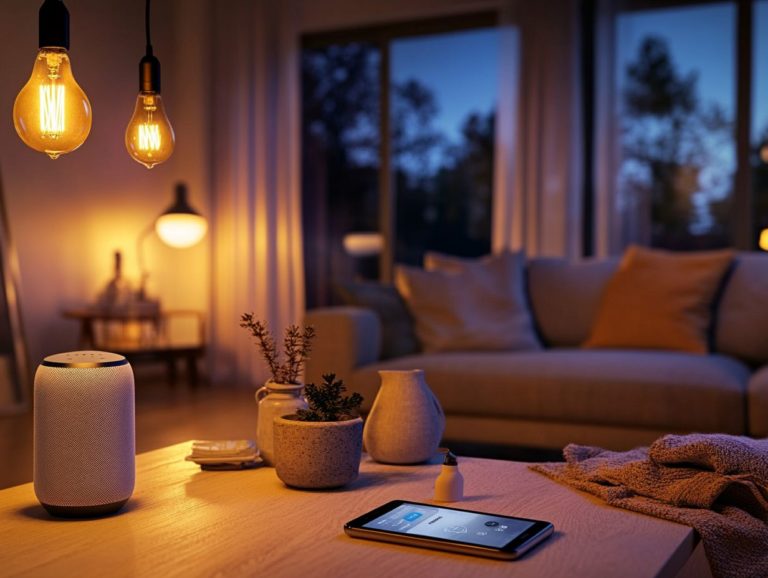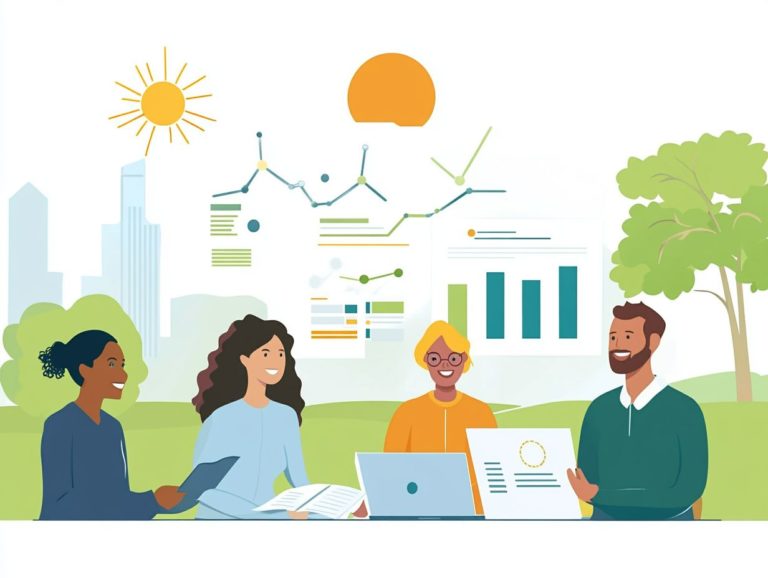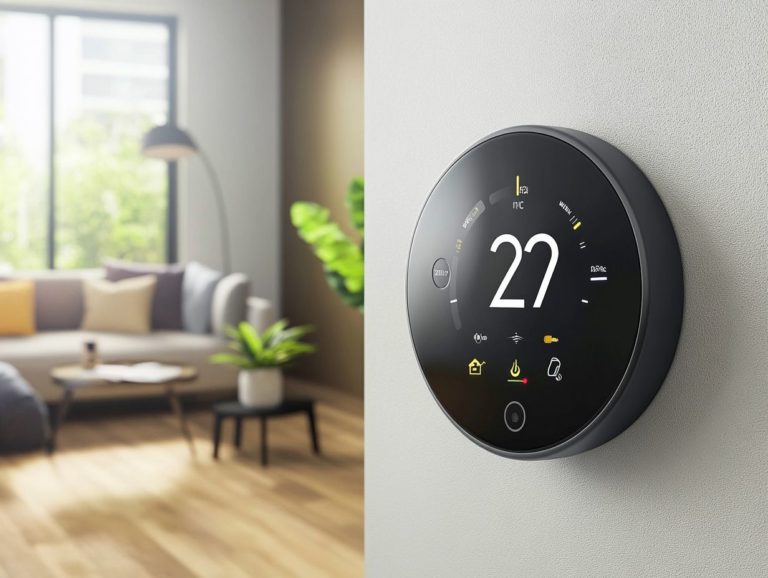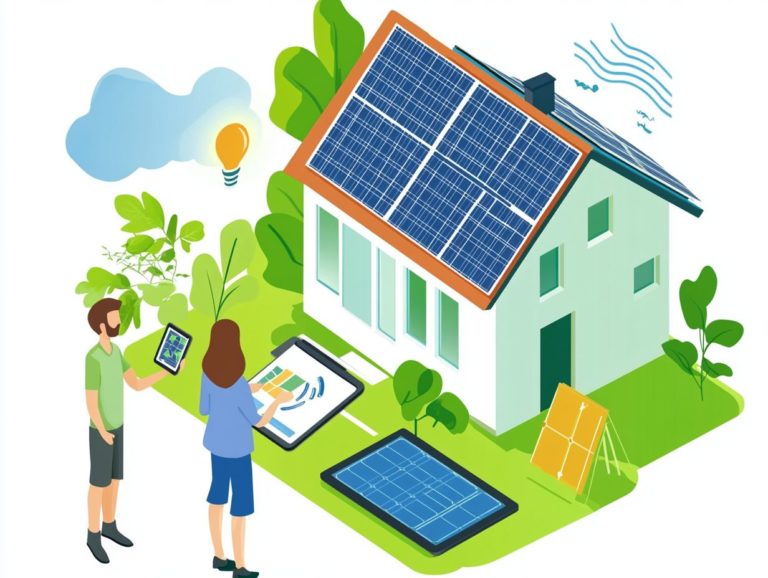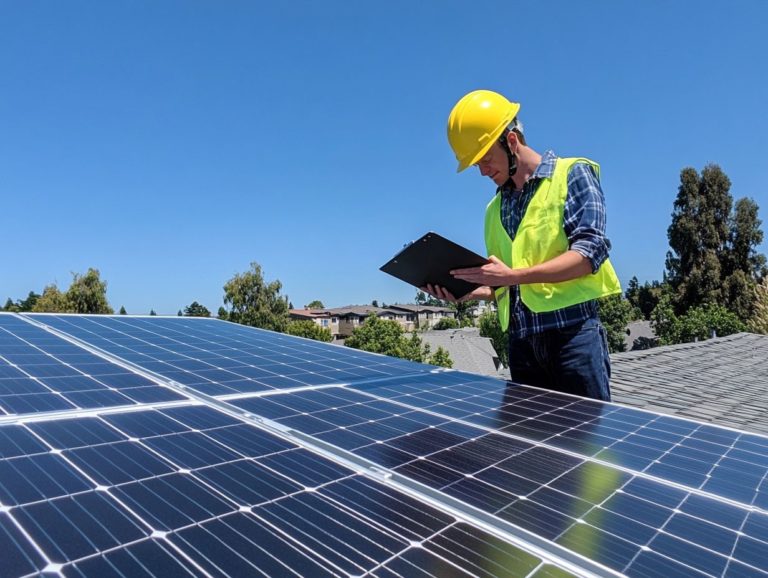What is the Difference Between Energy Efficiency and Conservation?
Energy efficiency and conservation are often confused, but they represent different ideas that are important for sustainable living.
This section explores what each term means and how they are connected. It looks at the environmental and economic benefits of energy efficiency, as well as how conservation can lower demand and costs for utility customers.
You ll find practical tips to improve energy efficiency and adopt effective conservation practices. Let s embrace this journey toward a sustainable future by implementing energy-saving strategies!
Contents
- Key Takeaways:
- Understanding Energy Efficiency and Conservation
- Benefits of Energy Efficiency
- Advantages of Energy Conservation
- Ways to Increase Energy Efficiency
- Practices for Energy Conservation
- Frequently Asked Questions
- What is the Difference Between Energy Efficiency and Conservation?
- What are the benefits of energy efficiency?
- How does energy conservation help the environment?
- Is energy efficiency the same as renewable energy?
- What are some examples of energy efficiency and conservation practices?
- How can I practice energy conservation at home?
Key Takeaways:
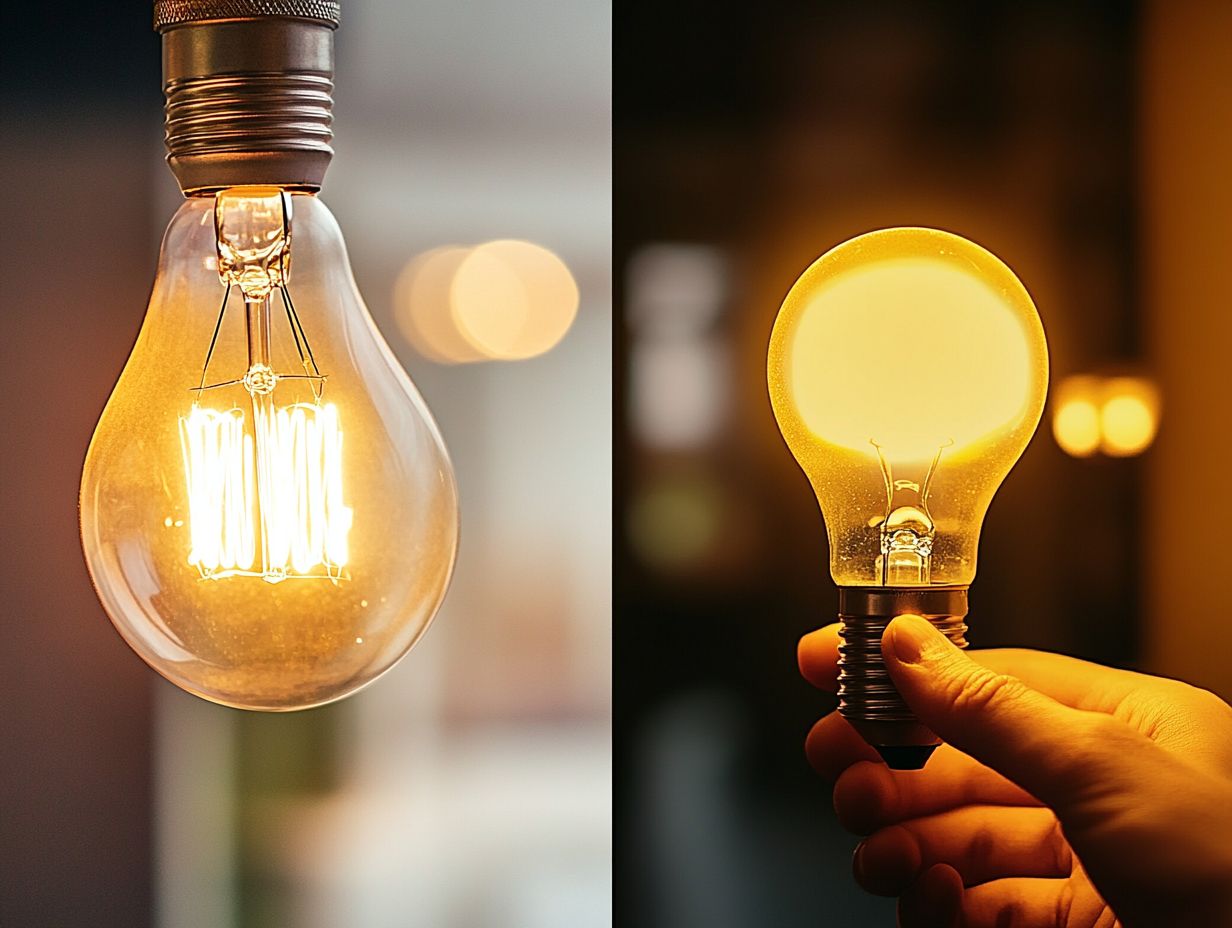
- Energy efficiency means using less energy for the same results. Conservation is about using less energy overall.
- Both approaches have environmental and economic benefits, but they save energy differently.
- Energy efficiency focuses on technology, while conservation relies on changing behaviors.
Understanding Energy Efficiency and Conservation
Understanding energy efficiency and conservation is crucial for homeowners and electric utilities. These practices can significantly cut down energy consumption and greenhouse gas emissions.
Using energy-efficient technologies, like Energy Star-rated appliances and smart meters, helps manage energy use, lower bills, and supports a sustainable future.
Conserving energy not only helps your household but also improves the overall efficiency of the electric power system. It can reduce peak demand and encourage the use of renewable energy sources.
Definitions and Distinctions
Energy efficiency means using technology to consume less energy for the same outcomes. In contrast, energy conservation is about using less energy by changing behaviors.
For example, LED light bulbs provide the same brightness while using much less electricity than traditional bulbs. Simple conservation practices include turning off lights when you leave a room or using public transportation instead of driving.
By combining energy-saving technologies with mindful habits, you can help conserve natural resources and reduce utility costs. Every small action contributes to significant energy savings and lower greenhouse gas emissions.
Benefits of Energy Efficiency
The benefits of energy efficiency extend beyond your home. They have substantial economic and environmental impacts that benefit communities and the globe.
Environmental and Economic Advantages
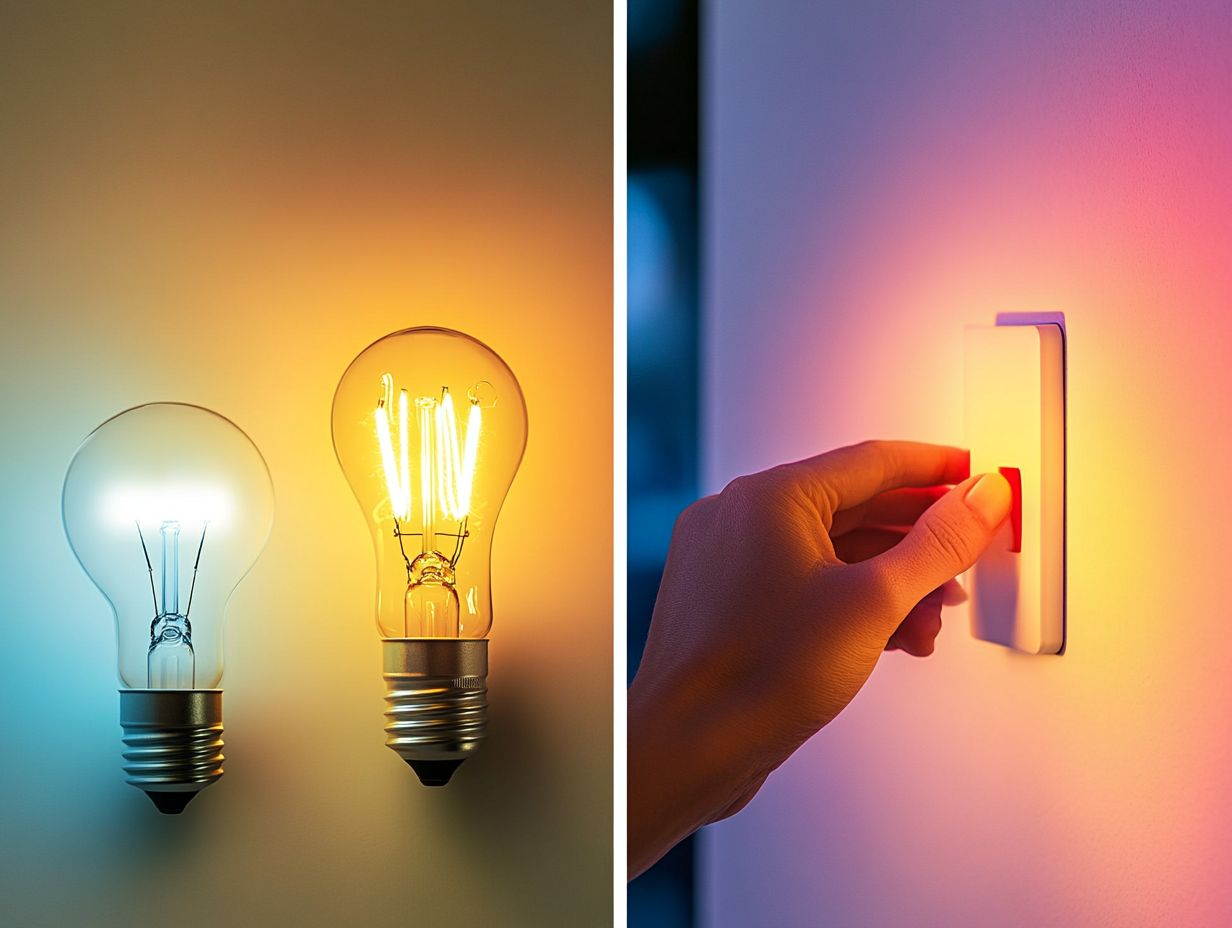
Using energy-saving methods, such as smart home hubs, can bring remarkable environmental benefits. This includes a significant reduction in greenhouse gas emissions. Additionally, you can enjoy economic rewards like lower energy bills and money-saving options such as cash rebates and tax breaks.
By optimizing your energy consumption through energy management, you can significantly decrease your carbon footprint. For example, switching to LED lighting can cut energy usage by up to 75%. Installing energy-efficient appliances not only conserves energy but also leads to impressive savings over time.
Electric utilities, like Wharton County Electric Cooperative, are increasingly recognizing the profitability of energy efficiency programs. These initiatives help reduce peak demand and lessen the need for costly infrastructure upgrades, which means managing energy use to help reduce costs and improve efficiency.
Money-saving options like rebates and tax breaks for energy-efficient upgrades encourage broader adoption, benefiting you as a consumer and utility providers alike.
Advantages of Energy Conservation
Energy conservation offers a wealth of benefits by lowering energy demand and costs. This approach helps you manage limited resources effectively and promotes sustainable and eco-friendly practices that contribute to a healthier planet.
Reducing Energy Demand and Costs
Reducing your energy demand and costs through effective conservation practices is achievable. By adopting better energy habits and fixing issues like air leaks and inadequate weather stripping, you can make a significant impact.
Doing a detailed check of your home’s energy use enables you to pinpoint areas where energy is wasted. This paves the way for targeted improvements. Simple fixes, such as sealing gaps around windows and doors, installing energy-efficient lighting, and using programmable thermostats, can lead to substantial savings.
Upgrading your insulation and ensuring your appliances are certified as energy-efficient will contribute to lower monthly bills. By recognizing these energy-saving measures, you empower yourself to take proactive steps toward a more sustainable lifestyle. This delivers financial and environmental benefits that will last for years.
Ways to Increase Energy Efficiency
You can enhance energy efficiency in your home or business through various effective methods. Check out energy-saving products and integrate smart home hubs while implementing strategic energy management practices.
These steps contribute to a more sustainable environment and can lead to significant savings over time.
Tips and Strategies for Improving Efficiency
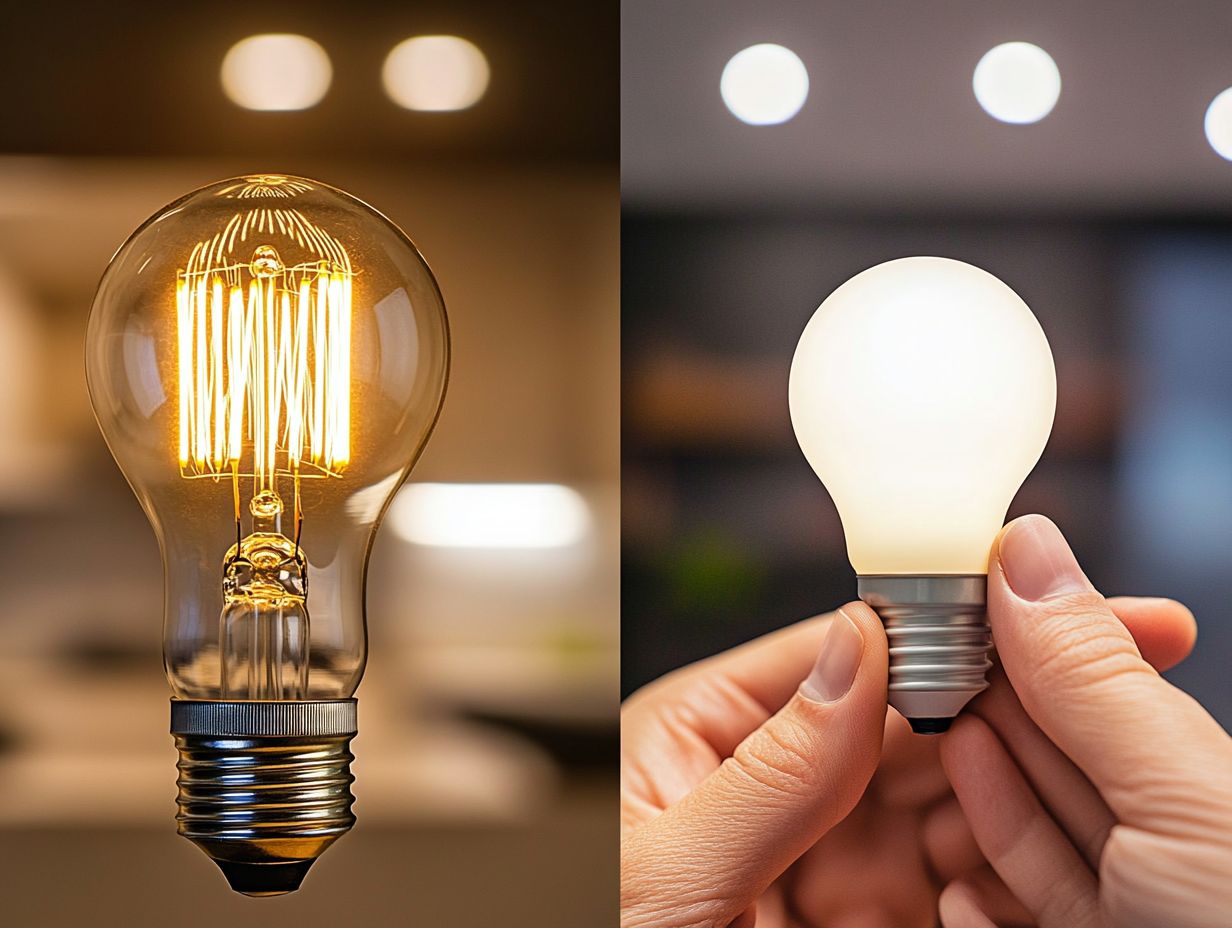
To enhance your energy efficiency, consider implementing straightforward tips like using energy-saving light bulbs and smart power strips. Conduct regular energy audits to identify opportunities for reducing consumption.
Try using programmable thermostats to control your heating and cooling. This ensures that energy is utilized only when necessary. Investing in Energy Star-rated appliances can lead to significant savings on your utility bills while helping to create a more sustainable environment.
Sealing windows and doors to prevent drafts can dramatically lessen heating and cooling demands, boosting overall efficiency. Adopting these practical strategies allows you to lower your energy consumption and enjoy the financial benefits of reduced utility expenses.
Practices for Energy Conservation
Implementing effective energy conservation practices is crucial to reduce overall energy consumption. This fosters sustainable, eco-friendly living within your community.
By embracing these practices, you contribute to a healthier planet and inspire those around you to follow suit.
Actions to Reduce Energy Consumption
To effectively reduce your energy consumption, consider a range of impactful actions, such as using energy-efficient vehicles, embracing public transportation, and enhancing your home insulation.
Carpooling is a smart choice. It can significantly reduce the number of vehicles on the road, which lowers greenhouse gas emissions and supports eco-friendly transportation options.
Switching to LED lighting in your home and office is a savvy move. These bulbs can consume up to 75% less energy than traditional incandescent options, translating to amazing energy savings!
Implementing smart thermostats devices that automatically adjust your home s temperature for efficiency can elevate your energy management game. These systems ensure your heating and cooling only operate when necessary.
Adopting renewable energy sources, like solar panels, allows you to substantially lessen your reliance on fossil fuels while championing sustainability.
Frequently Asked Questions
What is the Difference Between Energy Efficiency and Conservation?
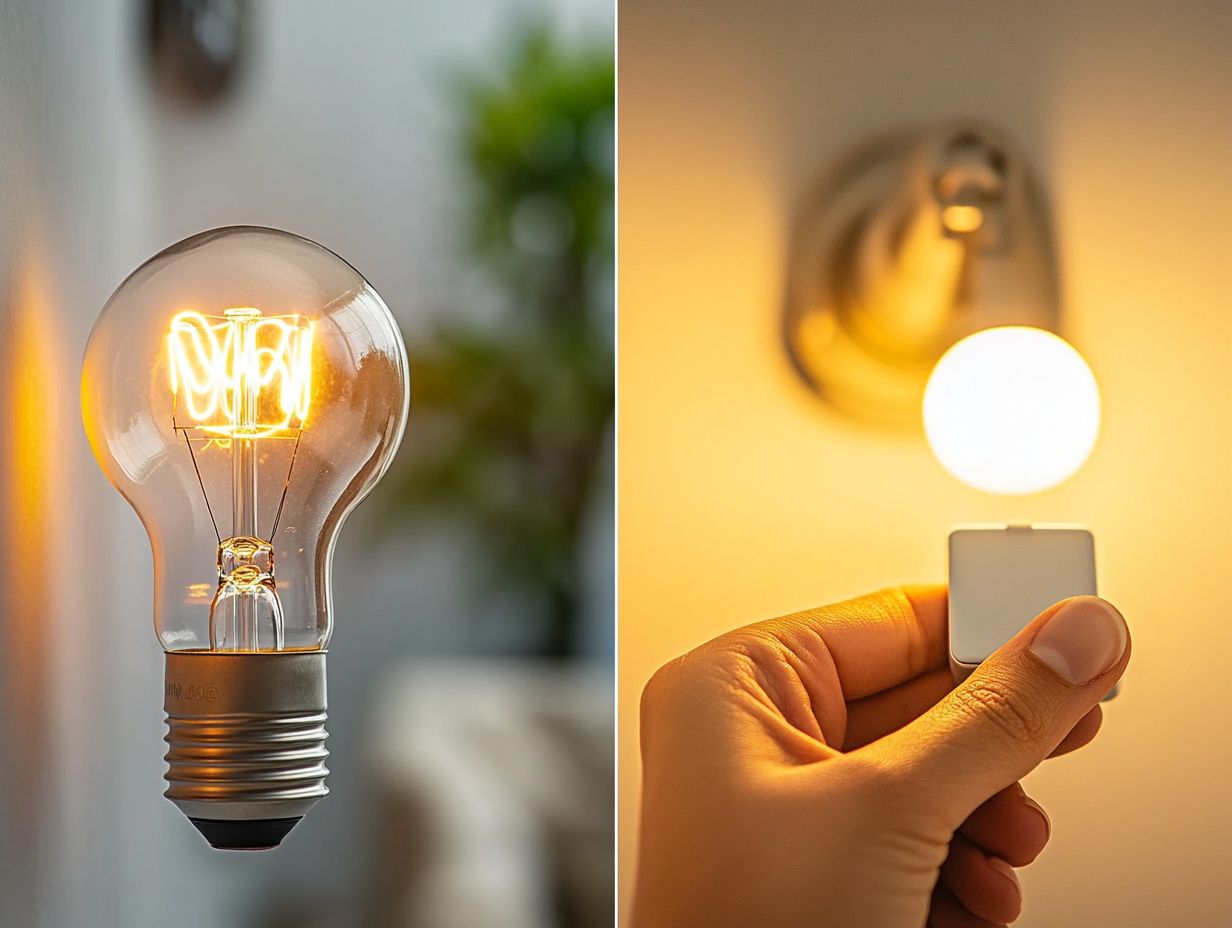
Energy efficiency refers to the process of using less energy to perform the same task. Conservation is the act of reducing or avoiding the use of energy altogether.
What are the benefits of energy efficiency?
Embrace energy efficiency to slash your energy bills and save money! It can help reduce energy costs, decrease carbon emissions, and conserve natural resources.
How does energy conservation help the environment?
By reducing energy consumption, conservation helps decrease the demand for energy production. This, in turn, reduces the negative impact on the environment.
Is energy efficiency the same as renewable energy?
No, energy efficiency focuses on using less energy. Renewable energy sources come from naturally replenished resources such as wind, solar, and hydro power.
What are some examples of energy efficiency and conservation practices?
Replacing traditional light bulbs with energy-efficient LED bulbs, insulating a home to reduce heating and cooling energy use, and using Energy Star certified appliances are all great examples of energy efficiency measures.
How can I practice energy conservation at home?
You can practice energy conservation at home by turning off lights and electronics when not in use. Unplug chargers and appliances when they are not being used, and adjust your thermostat to conserve energy.

